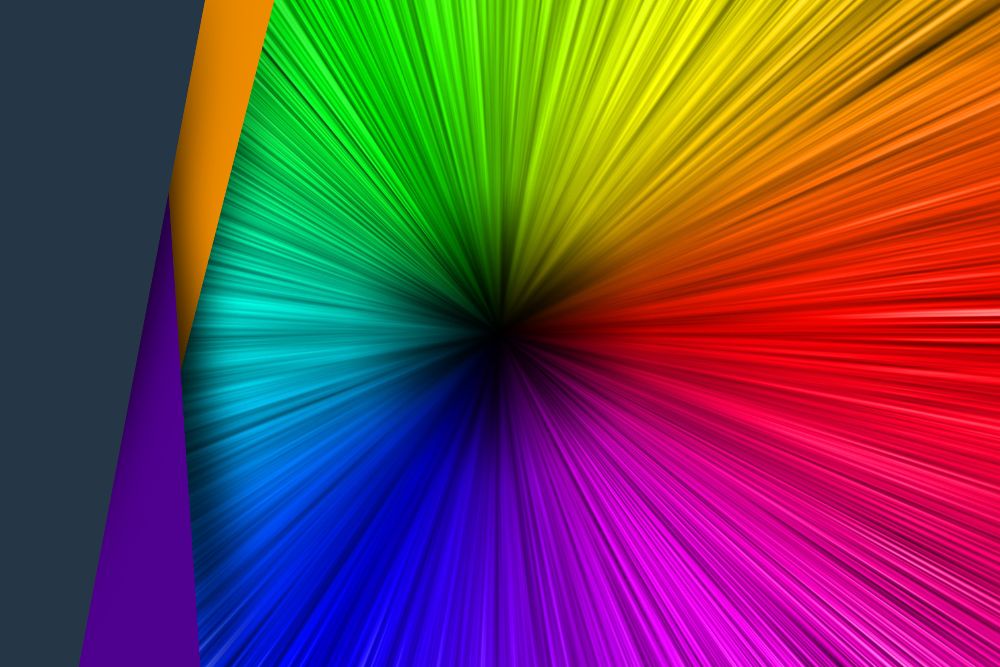In the rapidly evolving online world of health tech, where user experience (UX) is paramount, understanding the psychology of colour in design becomes crucial. Colour has the power to evoke emotions, influence perceptions, and drive user engagement. In this article, we will delve deep into the realm of colour psychology in the context of the health tech industry in the UK. We will explore the four psychological colours and their significance, as well as colour theory in UX design, we aim to provide insights to create visually appealing and user-centric digital experiences.
The four base colours
Colour psychology is rooted in the emotional and psychological impact that colours have on individuals. It explores how colours resonate with individuals on an emotional and psychological level, shaping perceptions and influencing behaviour. In health tech design, four primary psychological colours play a pivotal role:
Blue: Often associated with calmness, trust, and reliability, blue is an excellent choice for health tech interfaces. It instils a sense of security and serenity, making it ideal for promoting user confidence in healthcare applications.
Green: Symbolising growth, balance, and nature, green is relevant for health tech due to its association with health and well-being. Leveraging green in health-related designs can enhance feelings of comfort and rejuvenation.
Yellow: Reflecting positivity, optimism, and energy, yellow can infuse health tech interfaces with vibrancy and a sense of vitality. However, it should be used judiciously, as excessive yellow may evoke anxiety or strain the eyes.
Red: Known for evoking strong emotions such as passion, urgency, and excitement, red can be impactful in health tech design. Used wisely, red can draw attention to critical features or actions, but excessive use may lead to an overwhelming user experience.
Colour theory psychology in UX design
Colour psychology and theory in UX design focuses on the thoughtful selection and application of colours to enhance user experiences. Here are some key aspects to consider:
Brand alignment: Align the colour palette with your health tech brand’s values and message. Consistent use of colours across your digital products fosters brand recognition and loyalty.
Accessibility: Accessibility is vital in health tech, as digital solutions should be inclusive and user-friendly for all. Ensure sufficient contrast between text and background colours to aid readability, especially for users with visual impairments.
Contextual relevance: Consider the context of your health tech application. Different colours evoke distinct emotions, and your colour choices should align with the application’s purpose and target audience.
Visual hierarchy: Create a clear visual hierarchy by using colours to prioritise information and guide users’ attention. Subtle variations in colour intensity can indicate importance or progression within the interface.
Consistency: Maintain consistency in your colour scheme throughout the user journey. Consistency establishes familiarity, reduces cognitive load, and fosters a seamless user experience.
A/B testing: Conduct A/B testing to evaluate the impact of different colour schemes on user behaviour and engagement. Data-driven insights can help optimise your colour choices for better outcomes.
Cultural considerations: Be mindful of cultural associations with colours. Colours may have varying meanings across cultures, so tailor your colour choices to suit your target audience’s cultural background.
In the health tech industry, where user experience plays a vital role in shaping digital solutions, understanding colour psychology and its applications in UX design is indispensable, and this is where Highland Marketing can support your company. The four psychological colours – blue, green, yellow, and red – have distinctive emotional impacts, making them powerful tools for eliciting specific user responses.
By incorporating colour theory principles into health tech design, companies can create visually appealing, emotionally resonant, and user-centric interfaces. Striking the right balance between aesthetics and functionality, colour psychology holds the potential to revolutionise health tech experiences and improve overall user satisfaction.


